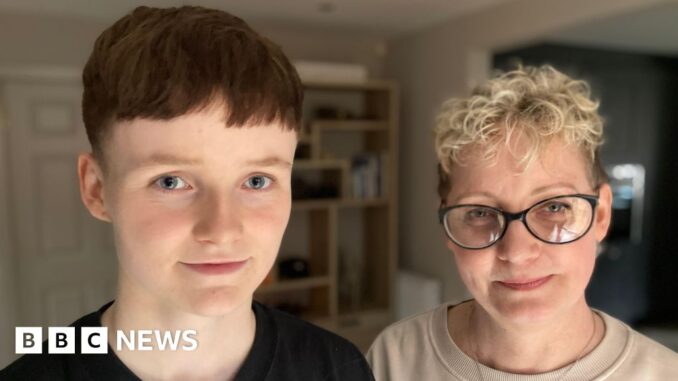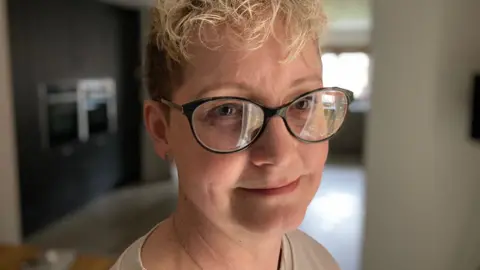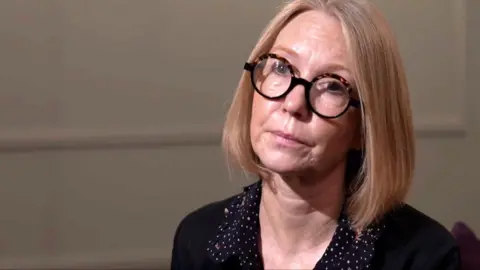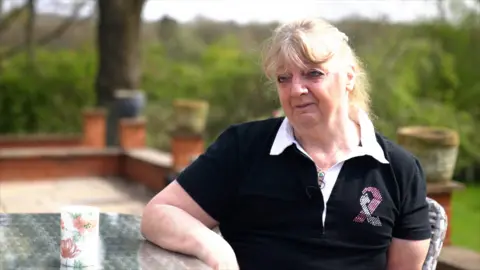
 BBC
BBCA 17-year-old has been rejected by the Army, despite passing all the selection tests, because two members of her family have had breast cancer.
Carys Holmes has a 50-50 chance of inheriting a gene fault from her mother but has not been tested for it yet.
A lawyer says the Army’s actions could be discriminatory and a serious own goal.
The Army said it was reviewing Carys’s case.
Carys trained hard for the tough three-day selection process at Whittington Barracks, near Litchfield, in Staffordshire, and her work paid off.
She passed the fitness and cognitive tasks with flying colours.
But near the end of the process, Carys was taken aside and told she was being rejected because of an “extensive” history of breast cancer in her family.

“I’d quit my job to train for it and everything,” Carys says.
“I just felt so crushed, like, ‘This is it – it’s over.’
“I put all my dedication into getting in.
“And then it just felt like something so little like that, it just ruined it all.
“It really upset me.”
 Jo Wilson
Jo WilsonBoth Carys’s aunt and mother had the Brca1 gene, which increases the risk of breast cancer.
Her aunt died of the disease and her mother, Rachael, is currently being treated for it.
Carys and Rachael asked NHS genetic counsellors to assess Carys’ chances of developing breast cancer should she have inherited the gene.
Her risk of developing it by the age of 30, they suggested, could be:
- 1.9% with the gene
- 0.1% without.
Based on these findings, Carys appealed against the Army’s decision but was unsuccessful.
Rachael is hurt her daughter has been rejected because of an unknown quantity.
“Having this gene doesn’t guarantee she’s going to get breast cancer,” Rachel says.
“And even if she did have the gene, she can take steps against that.

“It’s really short-sighted of them, bearing in mind how they are crying out for recruits.”
The Army’s medical policy on recruitment refers to some disorders that can be passed on in families but there is no mention of inherited breast cancer.
People who have been treated for cancer, cured and discharged from medical care can still join up, the policy says.
Over the past five years, the Army has rejected 125,861 applicants, according to the UK Defence Journal – more than 76,000 on medical grounds.
Asthma and back, eye or psychiatric problems can all be grounds for rejection.
But Centre for Military Justice director and lawyer Emma Norton says Carys’ case is very unusual.

“If the Army is operating a blanket policy of automatically excluding applications from all women who have a history of breast cancer in their family, that would appear, on the face of it, to be unlawful because it is discriminatory and may even amount to a human-rights violation,” she says.
“And this is at a time when the Army really should be doing all that it can to improve its reputation amongst women and encourage more and more young people to join up.
“It does seem to be a very serious own goal.”

Wendy Watson, who set up a national helpline for people with a family history of breast cancer, agrees Carys’ case is one of sex discrimination, as men can also carry the faulty gene and develop the disease.
Some women with the gene have preventative mastectomy (breast removal).
If a candidate appears at risk of a specific genetic disorder, the occupational physician responsible for recruit selection will assess the risk and its likely impact on the candidate’s health and safety in a military workplace – normally, without the need for genetic testing, the Army says.
“We’re not going to discuss the medical details of any Army applicant without their specific consent,” an official said.
“However, we can confirm that we’re reviewing the circumstances of this case and have contacted the individual to explain what’s happened and apologise.
“The issue is now being managed by the Army’s head of recruiting, personally.”



Be the first to comment